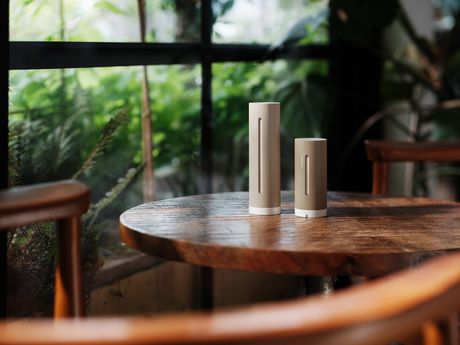
Netatmo unveils the new Weather Station ORIGINAL
Heating oil is often used as fuel for domestic heating stoves, but these are steadily losing popularity due to the amount of pollution that burning fuels such as kerosene, diesel and gas oil releases into the surrounding environment. While it may not be the most eco-friendly fuel, its low cost means that some people still use it to heat their homes. The predecessors of oil-fuelled systems were keeping people’s homes warm back before the invention of electrical energy… so perhaps it’s time to help the environment by moving on from heating oil once and for all!

There are two main types of domestic heating system that use oil, and they usually run on kerosene (gas oil or red diesel being the preferred fuel for businesses, public buildings and commercial spaces). The first type is a built-in heating system for your home that uses oil to produce energy to raise the temperature in your home. These forms of heating include one or multiple boilers or stoves that are connected to radiators or hot water underfloor heating systems throughout your home.
The second type is auxiliary or back-up heaters that run on oil, which can be used to complement a built-in heating system. These devices are sometimes referred to as wick or electric stoves. They tend to burn deodorised heating oil so as not to fill the rooms in your home with malodorous fumes.
That said, these back-up devices should only be used to give your central heating system an additional boost, rather than as a primary source of heat in your home.
Did you know that a Netatmo Smart Thermostat can help you remotely programme, regulate and optimise multiple heating oil devices in your home? You can install a Netatmo Smart Thermostat on various types of heating oil appliances to save time, use less power and bring down your home heating bill! Netatmo Smart Thermostats are very easy to install and will also make your home heating more energy efficient and environmentally friendly.
Here, we’ll take a closer look at two kinds of oil-fired stoves, wick and electric, to give you a clearer idea of which system might be the best way to heat your home.
Wick stoves are also known as single combustion stoves. They are simple oil heaters that operate independently, often with very basic designs. Wick heating oil stoves are very practical options for household heating as they use R20 batteries as well as heating oil. In terms of cost, wick stoves are an affordable option for adding an extra level of heating to your home. Wick stoves do, however, let off fairly strong odours when burning fuel. They commonly run on kerosene, which is derived from petroleum. They also consume more energy than electric stoves, as well as getting very hot while they’re in use. That means they can pose a safety hazard in the home, particularly to young children and pets. In addition, the wicks and igniters in these oil stoves need replacing on a regular basis. That said, there are now slightly more modern wick stove models available. These are double combustion heating oil stoves, rather than single combustion models. These double combustion versions are a relatively clean alternative to earlier models, as well as consuming less fuel.
As you might have guessed, electric oil stoves are essentially a modernised counterpart to wick stoves. These oil-fuelled devices are more complex, advanced, precise and efficient when compared to single or double combustion wick stoves. They run on home heating oil, also called fuel oil. Electric oil stoves can be easily programmed via your home thermostat and are capable of heating up the area around them very quickly. You’ll just need to ensure that your stove is connected up to the mains electricity network in your home. They can be useful when there is no gas supply at your property and you already have an oil-fired boiler. People living in homes which are not connected to the national gas grid need to order regular deliveries of oil, which they keep in a storage tank. The major drawback of electric oil stoves when compared to wick stoves is that they are significantly more expensive to purchase.
Is heating oil the right fuel choice for you? Above, we looked at the two kinds of home heating system that use heating oil as their energy source: built-in systems with stoves or boilers that burn oil to provide energy to heat radiators or underfloor heating systems, and wick or electric oil stoves to provide extra heat in addition to your main heating system.
Heating oil is a fossil fuel derived from petroleum that is, in fact, very harmful to the environment, animals and humans.
As such, oil stoves should only be used in rooms that aren’t regularly used as living spaces, such as garages, cellars, attics, laundry rooms, and so on. These spaces should be kept well-ventilated, too. Heating oil devices should also be used as an addition to safer, cleaner, greener forms of heating, not as the primary source of warmth for your home.
Limit health and safety risks, pollution levels and energy consumption by regulating how and when your oil-fired heater is in use with a Netatmo Smart Thermostat.
Heating oil is less expensive than electricity, but more expensive than other, more environmentally friendly and safer fuels, such as wood pellets. Why not take a look at all the great new, clean options out there, for safer, cheaper and greener domestic heating?